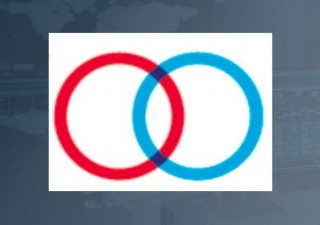US Patent Licensors Seek Massive Tax Refund in Korea
14 October 2016

Microsoft and NTP, a Virginia-based patent holding company, are seeking refunds of hundreds of millions of dollars in withholding taxes from South Korean tax authorities, claiming that they have been overtaxed on patent licence fees received from Korean companies, according to local news reports.
Microsoft made the move in August and filed a petition with the National Tax Service requesting the return of corporate taxes amounting to W634 billion (US$576 million) that Samsung directly paid to the tax agency through deduction from its patent licence payments to Microsoft.
It was previously revealed that Samsung paid the US tech company US$1 billion in royalties in 2013 alone for using its Android-related patents. In accordance to the Corporate Tax Act, Samsung has paid the National Tax Service 15 percent of the payments in the form of withholding tax.
Microsoft argued that the authorities have inappropriately taxed on the licence revenue relating to patents not registered in South Korea. it further said that it is double taxation since the corporation also pays taxes in the US. The claim is based on the territorial principle that patent rights are only effective within the jurisdiction where they are registered.
But the National Tax Service has decided to reject the demand and plans to inform Microsoft of the decision in October, as reported by The Dong-a Ilbo on September 22. A representative for the government told the Korean newspaper that it is natural for the tax authorities to levy tax on transactions conducted in Korea.
“If we follow Microsoft’s logic, Korean companies do not need to pay patent fees in the first place when using US patented technologies,” the representative said, responding to the argument of territorial principle.
As the basis for the rejection, the National Tax Service is expected to cite Article 93 of the Corporate Income Tax law, which was amended in 2008 to include income or fees obtained by a foreign company for a Korean licensee’s “use” in Korea of patents registered overseas in connection with manufacture and sale, etc., as domestic-source income. Therefore, Samsung’s payments to Microsoft for the use of the latter’s US patents are taxable.
In the meantime, NTP, a nonpractising entity that owns a portfolio of 50 US patents, has filed a lawsuit with the Seoul Administrative Court against the National Tax Service, pursuing a similar refund of W2.1 billion (US$1.9 million) in corporate tax levied on royalties it has received from Korean licensees.
The key issue is what constitutes domestic-source income that is taxable. There have been several similar cases over the return of taxes on the use of patents and the courts ruled in favour of the foreign patent holders in all instances.
A source has also told Asia IP that the Supreme Court judgment issued in 2014 has likely been the background for Microsoft’s decision to pursue the tax refund.
In the taxation dispute between Semiconductor Components Industries and East Suwon Tax Office, the Korean Supreme Court held that the royalties received by a US corporation from a Korean company for the licence of patents registered aboard do not constitute domestic-source income according to the South Korea-US Tax Treaty, regardless of whether the patent rights are in fact used in manufacturing and sales in Korea. As such, royalty income received for such patents is not subject to local taxation.
Making reference to a previous judgment in 2007, the court specifically recognized that a patent right “has effect only within the territory of the country in which the patent right is registered” under the territorial principle of patent rights, as stipulated by Articles 6(3) and 14(4) of the South Korea-US Tax Treaty.
The treaty only provides that “in case where an American corporation holds the right to exercise patent based on its domestic registration of a patent, the income paid for the usage of said right is a domestic source income.”
This in fact contradicts 2008 amendments to the Corporate Income Tax Law which require taxation on revenue from foreign patents if the related products are manufactured and sold on home soil. But the Supreme Court held that under Article 28 of the International Tax Coordination Law, tax treaties take precedence over domestic tax law, including the Corporate Income Tax Law, when classifying income as domestic-source.
Despite significant improvement in recent years, South Korea has always maintained a red ink figure in IP trade since authorities began keeping records on such things in 2010. According to the latest data released by the Bank of Korea and the Korean IP Office, the country posted an IP royalty deficit of US$780 million in the first quarter of 2016, down 60.4 percent from the same period of time last year.






